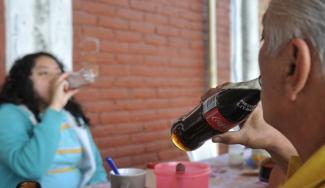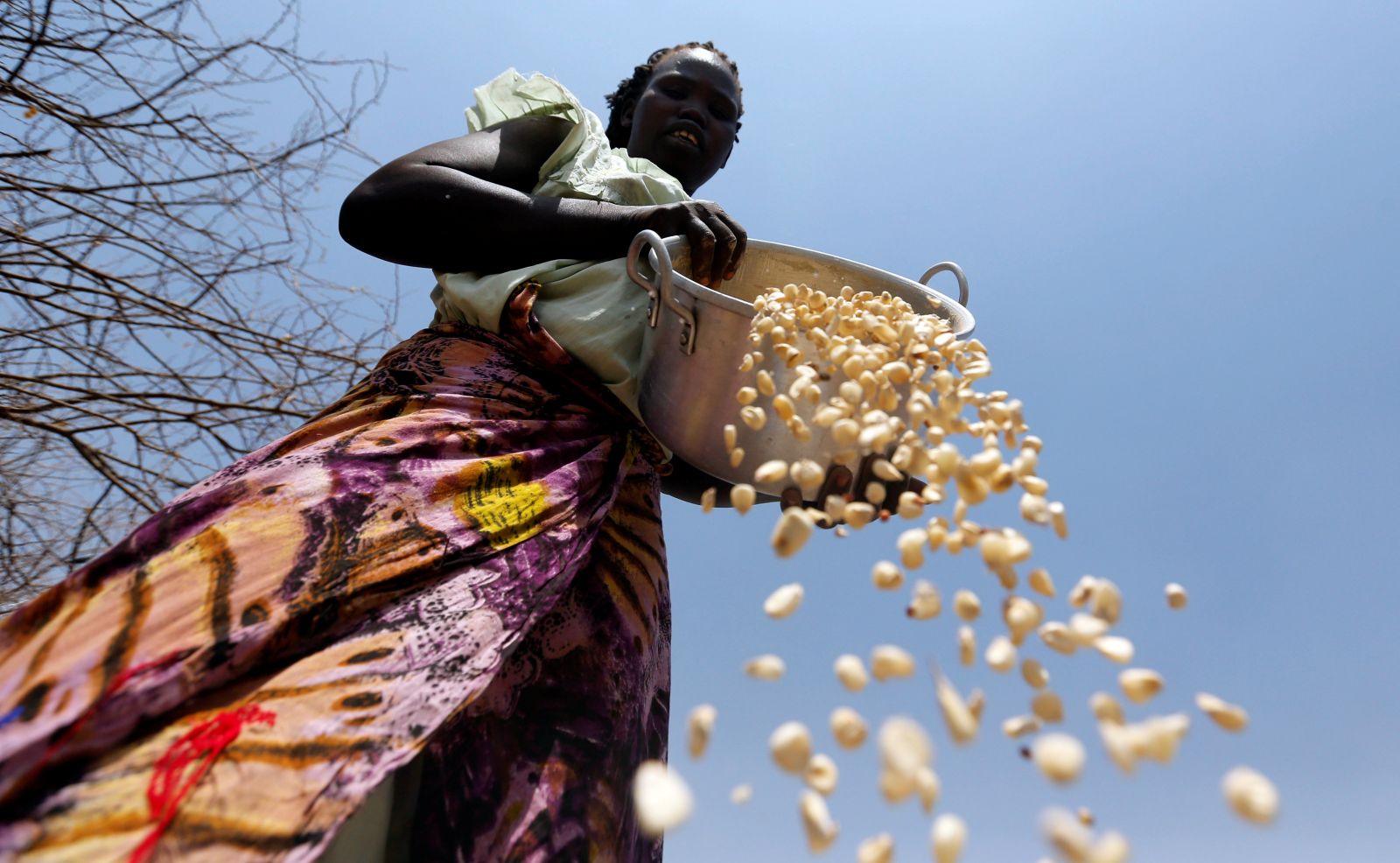Disease prevention
Sugar crisis in Mexico

How bad is the diabetes crisis in Mexico?
Today, Mexico is talking about an epidemic of overweight and obesity that affects 72 % of adults and one third of children and adolescents. In 2016, diabetes mellitus caused more than 100,000 premature deaths in the country, which led to the Ministry of Health to declare an epidemiological emergency.
Why did the crisis reach such proportions?
The problem of obesity was identified a few decades ago, but researchers who pointed it out were ignored. Instead of introducing preventive measures that would have slowed down the problem, the doors were opened to the big multinational corporations in the food and beverage industry, while at the same time neglecting Mexican agriculture. As a result, ultra-processed products proliferated across the country. They are also known as junk food, containing ingredients from monocultures such as wheat, corn or soybeans and artificial substances. New eating habits developed, with industrial products replacing traditional drinks and foodstuffs. Due to a lack of regulation, junk food became more accessible and affordable in Mexico (also see article in D+C/E+Z e-Paper 2018/02, p.6).
What is the role of soft drinks such as coke or soda?
The consumption of sugary beverages is a huge problem. For several years now, Mexican per-capita soda consumption has been the world’s highest. The problem is the high sugar content and the use of corn syrup with high fructose content. These drinks not only make people overweight and obese because fatty tissue grows in the body. They also lead to metabolic damage that makes the development of diabetes and cardiovascular diseases more likely, and these are the main causes of death in Mexico today.
Mexico is even known as the “Coca-Cola nation”....
Coca-Cola products are sold not only in the country’s 21,000 large Oxxo stores, but also in small shops and restaurants. The corporation paints their walls and provides them with table cloths and kitchen utensils. In some rural communities, Coca-Cola signs welcome visitors. Although the company has stated that it does not advertise for children under the age of 12, marketing efforts are made even in amusement parks.
Are certain groups, such as children or rural people, particularly affected?
The poor have less access to healthy food and less information about the damage caused by junk food and sugary drinks. Neither people with a lower level of education nor children have sufficient information to withstand the million dollars worth of advertising and the prominence of unhealthy food in everyday life. Unfortunately, this is true of indigenous communities as well. In the Altos de Chiapas region, for example, Coca-Cola’s per capita consumption is 2.25 litres per day. A recent study shows that overweight and obesity have increased significantly in rural areas, while they have stabilised in urban areas.
How does the disease change the everyday life of those affected?
Many poorer individuals only find out that they have diabetes when a wound on a foot does not heal, or when they start to go blind, and the doctor finds that they have retinal damage. It is common for people with diabetes to develop complications. The most common complications are vision problems and loss of vision. Amputations are needed too, and kidney failures occur. Many diabetics take drugs, but most of them do not manage the disease well. The quality of life of the individuals concerned deteriorates. If diabetes is diagnosed early on and managed well, complications and consequential damage can be largely avoided.
To what extent do patients receive appropriate medical care from state agencies?
Overweight and diabetes cause considerable costs for families and the state, which leads to horrendous household expenditures. To give you an example: Hemodialysis, which is needed by people with kidney failure due to diabetes complications, is very expensive. If the state wanted to include them in the “Seguro Popular”, the insurance with the largest coverage in Mexico, it would have to invest 80 % of its total budget – which is obviously impossible. We know that many hospitals deal with ulcer complications that cause gangrene by amputating limbs instead of applying less invasive but more expensive treatments.
Mexico introduced a tax on soft drinks in 2014 in the fight against the diabetes crisis. Does the “soda tax” work?
Studies have shown that the tax reduced the purchase of sugary beverages by 6.3 % in its first year, and the impact was even greater on households with children (11 %) and poorer households (10.3 %). In addition, the purchase of bottled water rose by 16.2 %. Next, the soda-tax revenue – or at least a substantial share of it – should be used for measures to prevent overweight and obesity. In cooperation with other civil-society organisations, we have proposed to create a fund to prevent overweight and obesity, but the government is reluctant to impose this measure.
Do you see a rethink among the Mexican people so far?
The people have become aware of the harmfulness of some products such as sugary drinks, but there is a great ignorance of other unhealthy foods such as processed cereals, yoghurt and other products that are marketed as being healthy even though they contain a lot of additional sugar.
Government and corporations block reforms. You and other health experts even became targets of espionage attacks (see also D+C/E+Z e-Paper 2017/06, p. 14). What’s happening?
There were attempts to tap our computers and phones. The Israeli NSO Group sent me an infected link with a spy malware named Pegasus. The company only sells these systems to governments – to fight organised crime and terrorism. Two days after I received the link, another colleague who was in Congress to campaign for the soda tax increase got it too. At the same time, the computer of a prominent researcher from the National Institute of Health was infected with Pegasus. Thanks to an investigation, we know that a dozen journalists and members of non-governmental organisations campaigning for human rights and against corruption were spied on. Based on the information available, our only convincing hypothesis is that public administrators provided espionage services to private-sector companies, which shows that the links between corporations and the government are close.
What power do corporations have over policymakers?
The food and beverage companies lobby legislators, buy scientists and sow public doubt. These are just some of the strategies they use to thwart sensible health policies. The National Strategy for the Prevention and Control of Overweight, Obesity and Diabetes, which the current government is implementing, is an example of how Mexico’s food and beverage industry interferes with public policy. The policy’s measures do not comply with the relevant international recommendations and guidelines. Some measures actually serve the interests of the food and beverage industries more than they help consumers. It is now mandatory to put a label with nutritional information on the front of food packaging, but the format is difficult to understand. The rule’s implementation is unconvincing.
What must be done to control the crisis?
This health crisis requires a human-rights approach, which must be supported by policies to prevent overweight, obesity and chronic diseases. Experts recommend a holistic approach, tackling the problem at all relevant levels, from food production to policy implementation. The consumption of unhealthy food must be made more difficult, whereas the consumption of healthy food and beverages must be facilitated and promoted. Relevant issues include regulating advertising for children, introducing convincing labelling and regulating school meals to ensure that children receive healthy food and free drinking water. Further taxes on unhealthy foodstuffs would also make sense, and so would subsidies for healthy products.
Alejandro Calvillo is the founder of El Poder del Consumador (Consumer’s Power), a Mexican civil-society organisation.
comunicacion@elpoderdelconsumidor.org
http://elpoderdelconsumidor.org/














